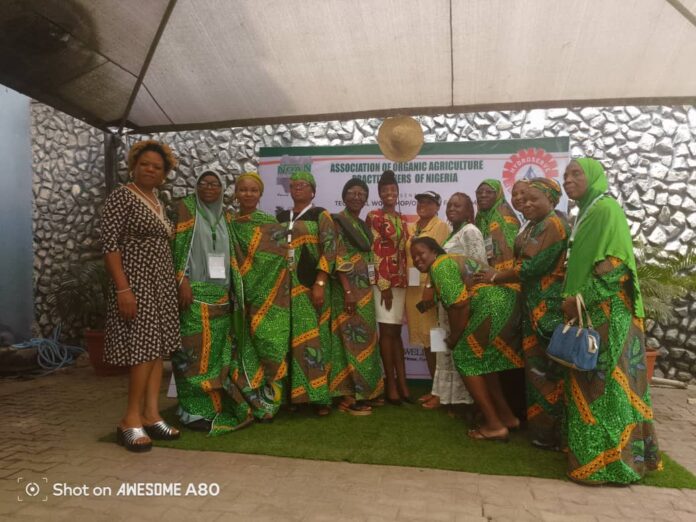Following a powerful 30-day agricultural mission across Nigeria that concluded on May 2nd, Ambassador Davisha L Johnson, a naturalized citizen of Ghana since November 2024, resident since 2021, and visitor since 2019, has ignited a wave of investment and partnership opportunities for the Black American and global diaspora communities. As the Goodwill Ambassador of Georgia, TADC African Embassy Ambassador, Founder of TADC Chamber of Commerce and Industry, and the President of the Cooperative Executive Management Team, Ambassador Johnson has spent 6 years looking to build infrastructure to create industries but now—this time, beyond Ghana.
Wielding her ECOWAS passport with purpose, Ambassador Johnson has catalyzed high-level discussions across Nigeria, positioning agribusiness and sustainable farming at the center of a new movement for regional growth. As the One Hectare Sustainable Farm (OHSF) model—first designed in Ghana—gains traction across Nigeria, Côte d’Ivoire, and Burkina Faso, Ghana’s role as the diaspora gateway is being challenged.
“Ghana was the starting point. But while we planted the seeds there, the harvest is happening elsewhere,” said Ambassador Johnson. “Nigeria’s agricultural sector is booming with support, access, and political will—three things we’re struggling to consistently secure in Ghana.”
This shift comes as the African Diaspora Collective (TADC) and its implementation arm, the Cooperative Executive Management Team (CEMT), work with Nigerian institutions to develop a secured, pilot hemp cultivation site, modeled after CEMT’s OHSF framework developed in Ghana.
The goal is to establish regulatory and research-based systems to unlock Nigeria’s agricultural innovation potential, especially in high-value crops like hemp.
Ironically, Ghana is the birthplace of many of these pioneering programs. Since 2019:
• The African Diaspora Collective Chamber of Commerce and Industry (TADC-CCI) was launched to formalize diaspora investments in Ghana.
• The Cannabis Research Institute (CRI) was founded to support policy engagement and education in industrial hemp.
• The Advocacy, Implementation, and Education (AIE) Project launched in 2022 to champion farmer training, climate-smart practices, and agro-export readiness for industrial Hemp.
• And most recently, over 500 students at a Senior Technical High School in Kumasi enrolled in a TADC-led OHSF Small Business
Incubation Program, focused on agribusiness and value-chain development, still waiting on approvals from Regional Education Minister.
Ghana also hosted a remarkable three-month fellowship for a student from a prominent U.S. Historically Black College and University (HBCU). That fellow not only stayed beyond the program but has since secured employment and remains based in Ghana—proof that the country can attract and retain top diaspora talent when conditions are right.
Yet despite six years of hosting the Hemp Tech Conference in Ghana, delays in licensing, policy ambiguity, and limited state-level engagement have made Ghana appear less attractive compared to its ECOWAS neighbors and other African countries like South Africa, Malawi, Rwanda, and Uganda that have already issued Hemp licenses. The diaspora is now evaluating more proactive partnerships in countries like Ivory Coast, Burkina Faso, Nigeria, South Africa, Rwanda, Malawi, Kenya, and Botswana, where agriculture is seen as a national priority and a diplomatic bridge not as punishment and work only for the illiterates.
Still, TADC is not abandoning Ghana.
“We built institutions in Ghana for a reason,” said Ambassador Johnson. “Now we are spring boarding those models across ECOWAS, and we hope Ghana chooses to lead—not lag.”
TADC is currently preparing to engage with the ECOWAS Commission to align the OHSF and AIE programs with regional agricultural policy and the Fight for 15 Global Compact, a bold 15-year development roadmap starting with Project 2040 to Re-Brand the Black Farmer for the 22nd century. The mission is clear: integrate the diaspora into every level of agricultural and economic transformation across West Africa.
Ghana has the infrastructure, the reputation, and the talent. The question now is whether it will reclaim its momentum—or watch it grow elsewhere. The Diaspora is coming back to Africa, but will they continue to choose Ghana is the question? Ambassador Johnson is focusing on providing the Black American, Caribbean, and Diaspora community at large all viable options of where they will yield the most harvest.








